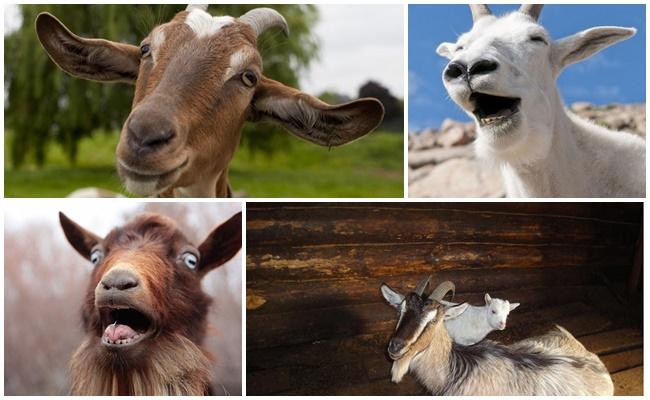You can determine whether everything is okay with your pet by its behavior. If an animal refuses to eat and screams for days on end, it is necessary to take a closer look at it and establish the reason. The whims of a horned nurse are not always associated with poor health or unfavorable living conditions. Let's consider why a goat yells? What to do to stop her from screaming.
[toc]
Why does the goat constantly yell
Beginning goat breeders often ask the question on forums: “Why does my goat scream loudly?” At the same time, they give arguments that she is fed and has plenty of water, and nothing seems to hurt.
Frequent causes of an animal’s relentless screaming:
- Loneliness. This condition weighs heavily on the horned nurse.A goat is a herd animal, so it is better to keep several individuals. Left alone, she begins to scream, refuses food, loses milk, and may get sick.
- Approaching birth. Primiparous jumpers are in a panic. Some of them express concern with their gaze, but more often the animal refuses to eat and drink, rushes around the pen, and bleats pitifully. After lambing, if the kid remains with the mother, she gradually calms down.
- The goat is in heat. In this case, in addition to loud bleating and tail wagging, the animal refuses to eat. The outer part of the vagina under the tail becomes red, swells, and mucous discharge appears.
- Hunger. Horned animals are demanding when it comes to food, since by nature these animals are fastidious and clean. Nurses drink only clean water and eat high-quality food. Otherwise, the goat will turn the hay out of the feeder under its feet and scream.
- Discomfort. Despite the fact that artiodactyls are tolerant of cold weather, when the temperature in the barn drops below 0°C, the animal feels uncomfortable and begins to freeze, which notifies the owners by screaming. Dampness in the room and drafts negatively affect the condition of the nurse.
- Disease. With proper care and high-quality food, horned beauties rarely get sick. However, the disease can affect any body system. In addition to a decrease in appetite and productivity, the goat notifies about malaise by bleating plaintively.
- Longing for the former owners. When the owner changes, the animal needs some time to adapt to the new conditions of keeping and nutrition. A representative of the bovid family can not only scream, but her milk yield decreases and her appetite disappears for a while.
Animals that were free-grazing with their previous owners, but when they get to the new owners, are constantly on a leash and become stubborn and obstinate. They will yell and behave willfully, trying to free themselves from their bonds.
How to stop an animal from screaming
A goat is an intelligent animal and will not disturb its owner over trifles. If she cries for no apparent reason, it means she lacks attention. There are many ideas on how to wean a domestic screamer from distracting the attention of its owners. The most popular and effective:
- Get her a girlfriend. It is not necessary that the companion be purebred. The main thing is that they are not bored. The herd instinct will kick in and the animal will calm down.
- Hang a mirror in the shed. The goat sees its reflection and becomes quiet.
- Put up a scarecrow. The owner's old clothes are put on him. At the same time, the outfit must smell like the hostess. Periodically, the scarecrow's equipment will have to be changed, since it is important for the animal not only to see, but also to smell the breeder.
- Tie a dog nearby. It's good when the dog is small.
Some owners use more radical measures to stop the goat from bleating: locking them in a dark barn for several days or making an incision in the vocal cords.













